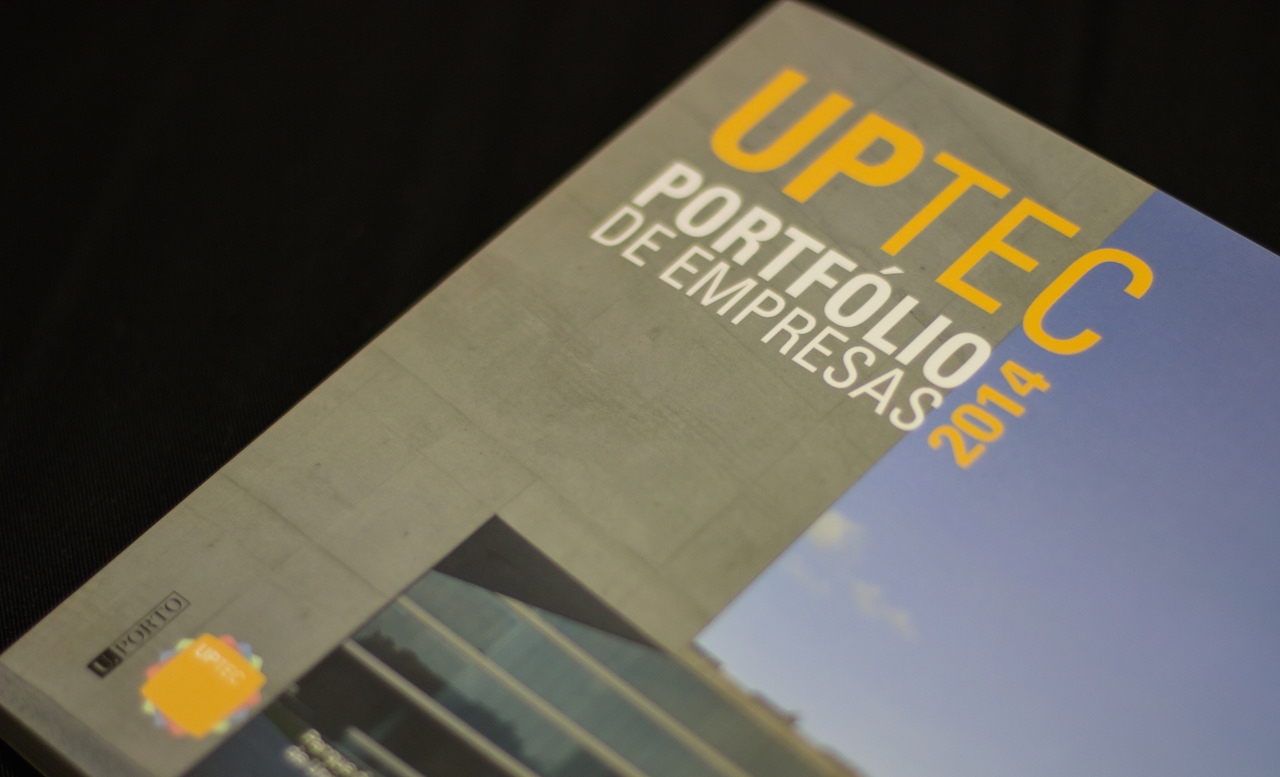 Clara Gonçalves wanted to be veterinarian as a child, ended up in Agronomic Engineering and is now the Executive Manager at UPTEC. PortugalStartups.com spent an hour with Clara talking about the ins and outs of the Portuguese Startup Ecosystem.
Clara Gonçalves wanted to be veterinarian as a child, ended up in Agronomic Engineering and is now the Executive Manager at UPTEC. PortugalStartups.com spent an hour with Clara talking about the ins and outs of the Portuguese Startup Ecosystem.
What is UPTEC
UPTEC, the Science and Technology Park of University of Porto, supports an effective knowledge and technology transfer between the academia and the market and aims to foster the creation of technology-based companies and creative businesses.
Divided into four distinct centers – Technology Center, Creative Industries Center, Sea Technology Center and Biotechnology Center – UPTEC has two types of support structures for businesses: Incubators and Centers for Business Innovation. In the Incubator, entrepreneurs find the necessary support to turn their ideas into businesses with potential for rapid growth. At the Center for Business Innovation, the existing businesses find the space and mechanisms to host and operate their projects and activities, benefiting from the synergies that exist with the R&D Departments and other interface institutes of U.Porto.
But it wasn’t always like that. Back in 2006, UPTEC was no more than a bunch of prefabricated pavilions and projects, like Nonius and Bilobite.
For Clara Gonçalves the challenge was tough: “There were some guidelines, but nobody knew very well what it was going to be. Later on we received 30 million euros from the European Union and that investment allowed us to expand the team and build infrastructure.”
Erasmus Generation and Changes in the Learning Process
Crossing the UPTEC hallways we can see today, more than ever before, people doing incredible stuff, with higher quality pitches and prepared to raise international investment when needed. According to Clara, the mindset of the last generations suffered a lot of changes, and Universities had a preponderant role, specially after the creation of the Erasmus exchange program.
People are trained to think, have an ease to search for information and are more adaptable and creative due to international experiences. And in fact, most people working in UPTEC already had those experiences, either through an exchange program or an international job.
But the changes on education that are shaping this generation’s mindset can be seen even in primary school – a few decades ago, kids would be punished every time they made a mistake; right now mistakes are seen as a natural part of the learning process.
Facing mistakes is the key for a startup success. Understanding the failure will lead to a better preparation.
How is the society keeping up to the changes
At UPTEC, the selection process has in consideration not only the CV of each applicant, but also the profile. “It is important for us to understand where people come from, if they already had any kind of startup experience and if they are resilient. When it comes to managing this type of projects, you have to be able to fail, get up and try again. We comprehend these people’s anguish, we are talking about their life bets.”
But for some people and organizations the adaptation has been hard. There are still investors in Portugal that can’t keep up with the fast evolution of startups. The amount of startups creating cutting edge technology and disruptive business models is increasing, nevertheless some investors keep trying to fit them in traditional models: “You have to be humble, admit when you don’t understand the project, and put the startup in touch with someone that will.”
For Clara, the next generation of Portuguese investors will look a lot more like most of the international VC’s: be composed by successful entrepreneurs that already had startups, exits, and really have a passion for this world, making the ecosystem more robust.
A lot more can be done
We are in a good direction. Considering Portugal size, the growth of the entrepreneurial ecosystem is amazing. Take US or the UK as an example: they have 3 or 4 outstanding hubs, but the rest of the cities there are not very developed.
Portuguese are really excited now about entrepreneurship and even foreign companies are coming to find qualified people and to make technology transfer. However, as soon as the human resources start to run low, it may all change. According to Clara, the solution is to requalify people: “many individuals have the right skills to make stuff that they don’t even dream about, and if they are for instance unemployed, requalification may be a way to get out. Not everybody has to create a startup, but we should all have mental flexibility and the ability to adapt.”

